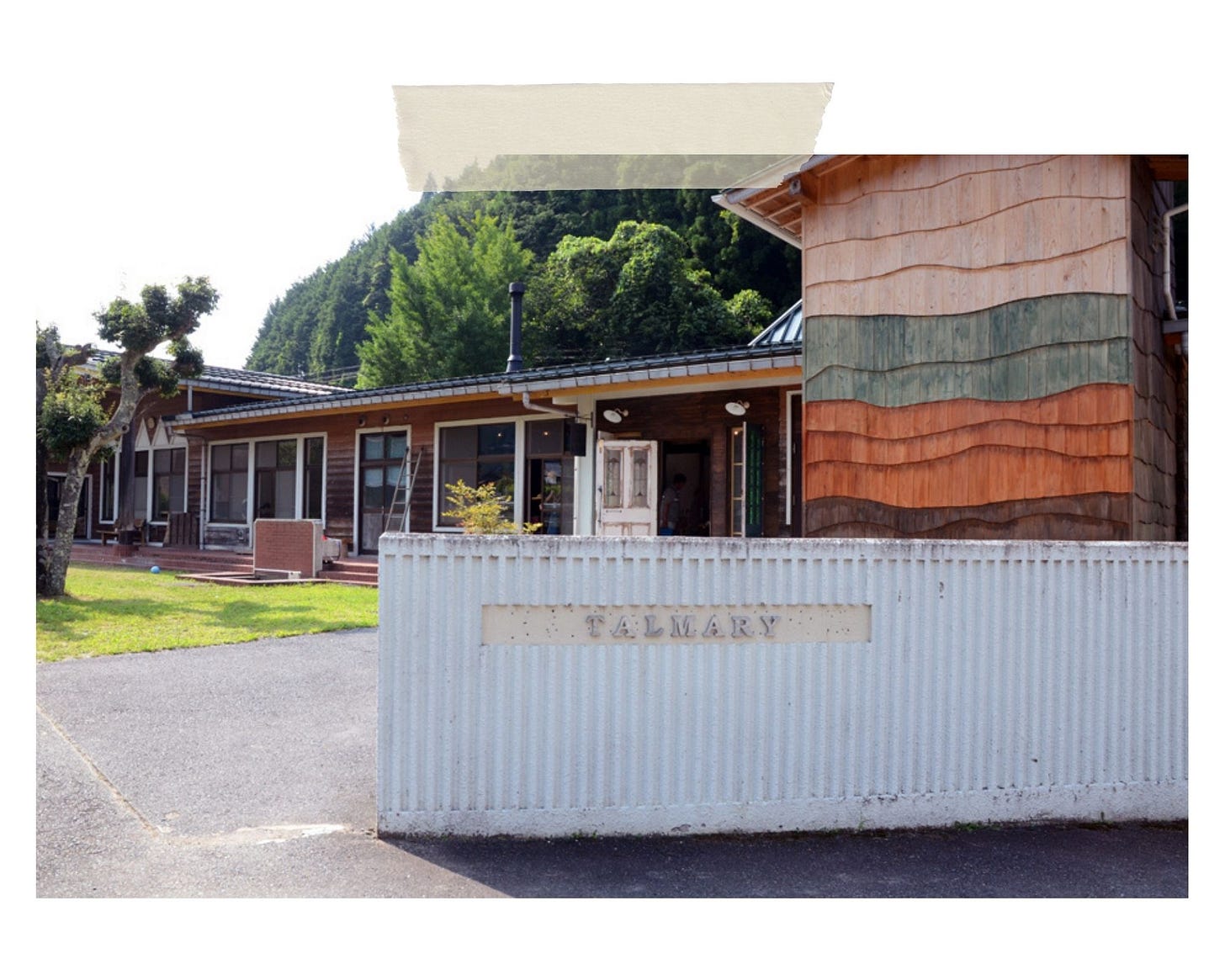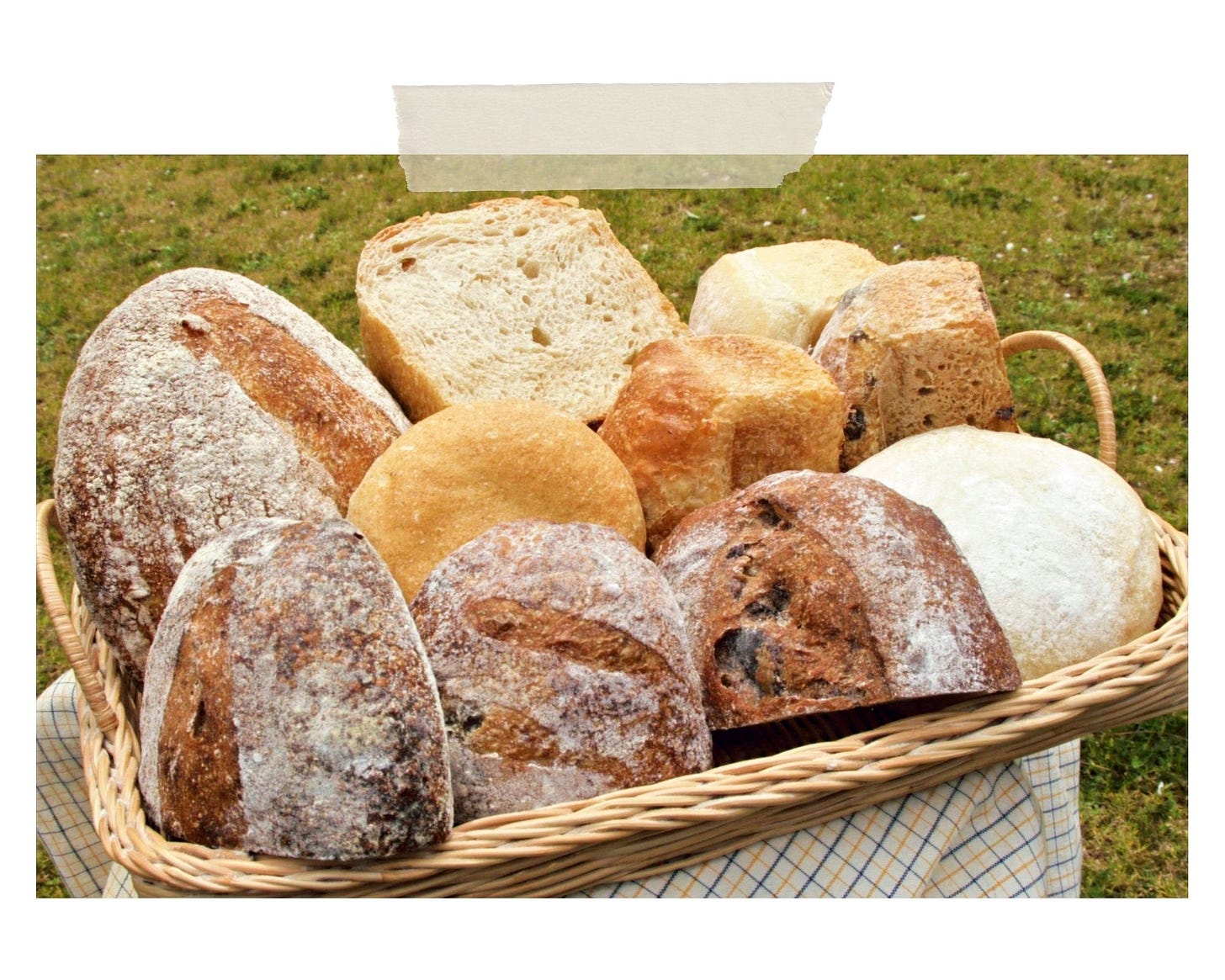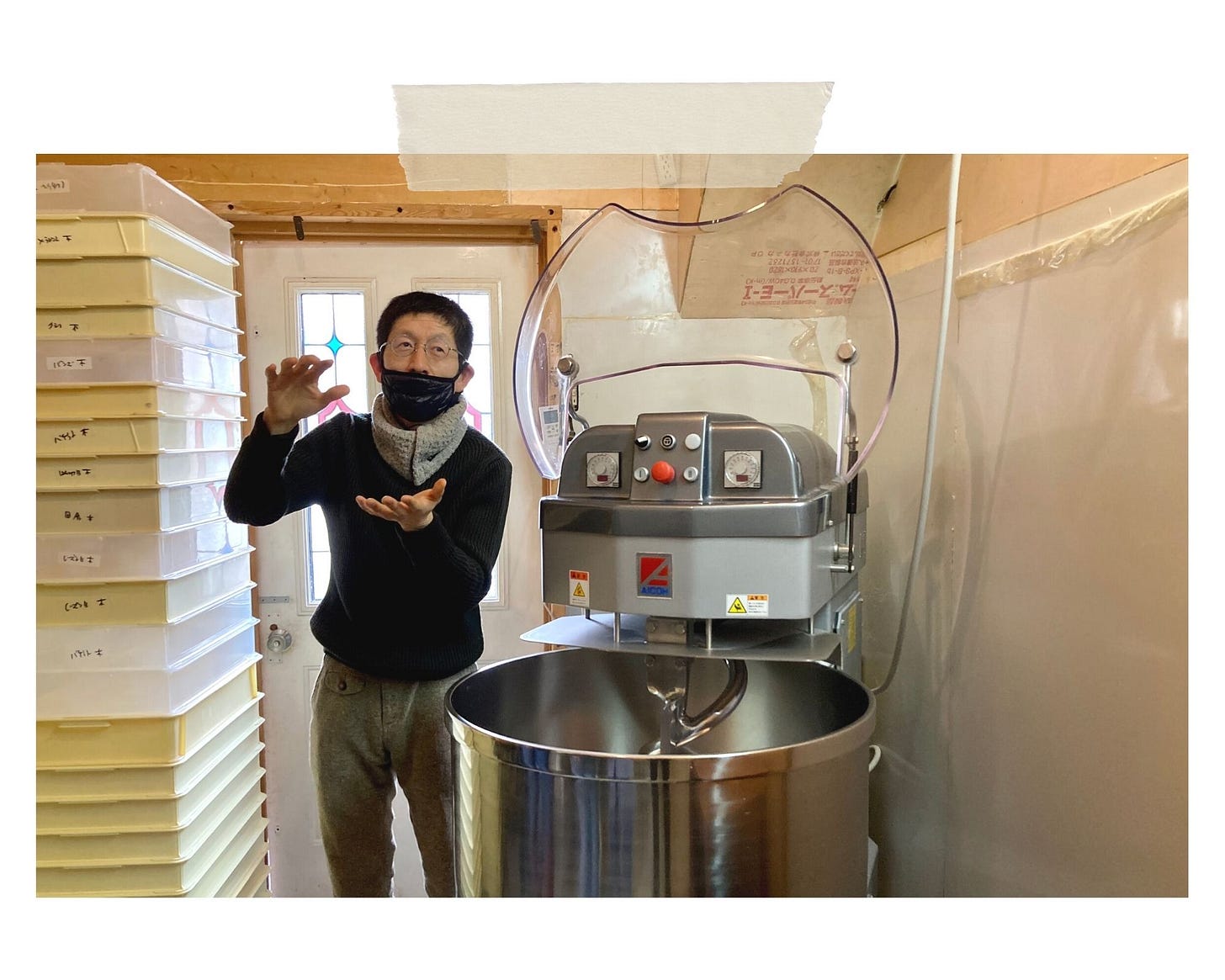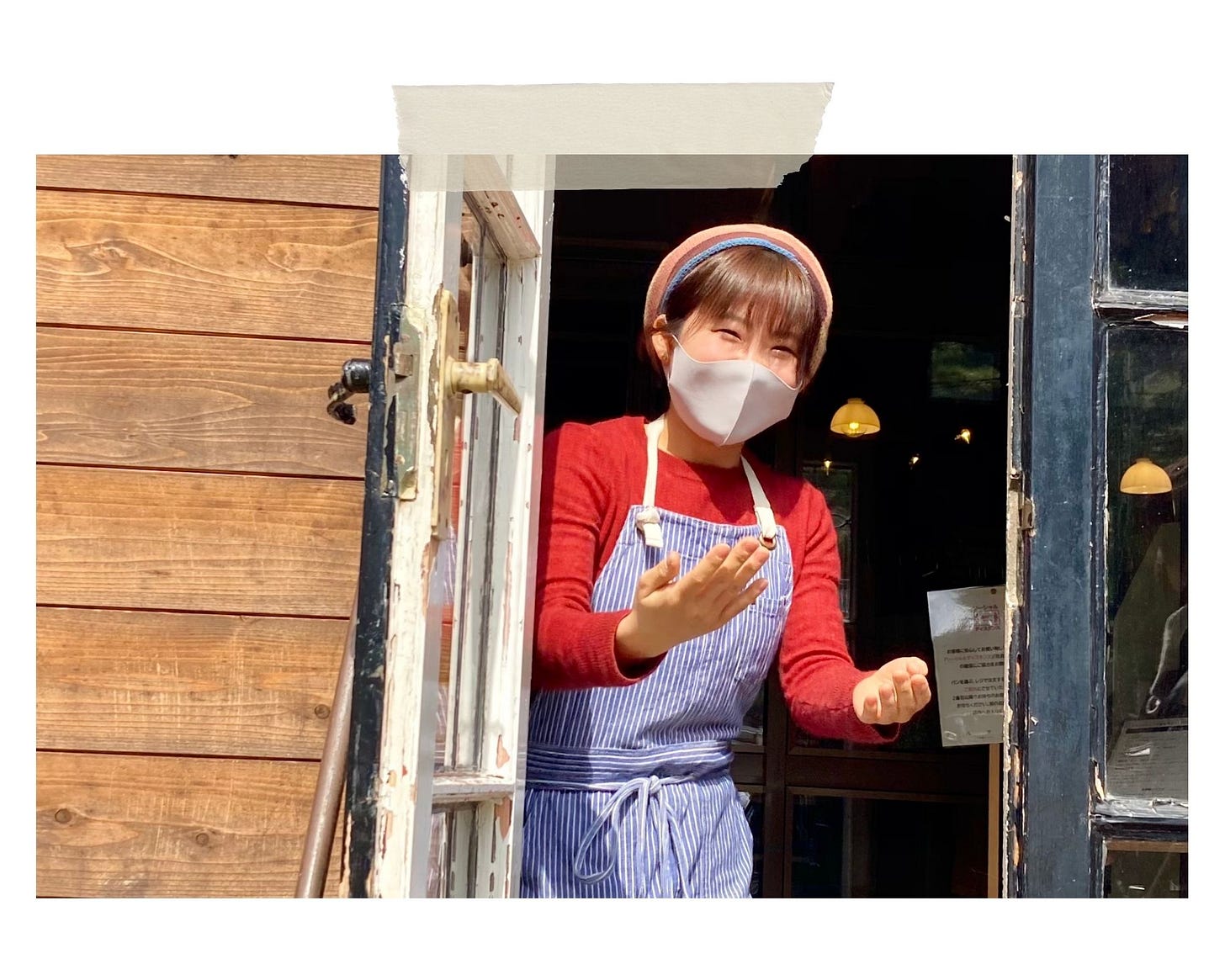a trip to Chizu
a quest to understand natural bread
Hello reader, thanks for being here! I’m Kana and this is the (normally) Sunday edition of Tending Gardens, which you can read about here.
If you like it and want more like it in your inbox, consider subscribing.
a quest to find natural bread
This week I had the chance to visit a small town called Chizu, located in Tottori Prefecture. Tottori, along with Tokushima, is one of the least populous prefectures (with about 500,000 inhabitants, compared to Tokyo of nearly 37 million people).
Chizu has a population of just under 7,000 and 93% of the town is covered by forests. Located a little ways away from the main part of the town is Talmary—a bakery and brewery that prides itself on a special ingredient—wild yeast.
Talmary is well-known for the unique process they ‘capture’ wild yeast and use it in the fermentation of their bread and beer. Home-cultured wild bacteria is a unique concept, especially if you start to understand how standardized and industrialised the yeast mostly using and consuming.
As unique as the bread and beer are the founders Itaru and Mariko Watanabe. The name Talmary actually comes from a combination of their names Taru+Mari. This is a short piece about bread and Talmary’s unique philosophy that extends beyond bread.
capturing local wild yeast
Do you know how bread is made? Maybe you were part of the bread craze at the start of the pandemic where people were in a frenzy to bake? Bread, the kind we typically eat, is made by fermenting dough with yeast.
The next question is then, what is yeast? Yeast is alive! It’s a tiny microorganism that acts as a catalyst in the fermentation process that makes bread to rise. What you might not know is that yeast is all around us—in our air, soil, and on our skin.
Yeast when added to baked doughs, feeds on the sugars in the flour and produces carbon dioxide. This carbon dioxide creates thousands of bubbles and gives the bread an airy texture after it’s baked.
Industrialized, pure culture yeast is suitable for producing mass quantities of bread because it creates homogenous bread. But this means we are standardizing bread and degrading nutrition. In Japan, it’s also common to add ingredients butter, sugar, milk and eggs. But Talmary bread is made from only locally sourced wheat, salt, water and wild yeast (with occassional additions of dried fruits and nuts).
The uniqueness of their bread comes from the fact that Talmary doesn’t use industrialized yeast, instead they collect their own… from Chizu! The wild bacteria are collected from the atmosphere and cultivated for bread and beer. Talmary is the only brewery in Japan that brews all craft beer with only wild yeast.
The couple has had to relocate two times before feeling settled in Chizu. The reason for settling in lies in the purity and deliciousness of the town’s mountain water (forests help purify the air and water). Wild yeast also can’t fall if there are pollutants in the air so the abundance of natural environments is the reasons the yeast does too. Their bread has been made with the policy of using only self-cultivated yeast and domestic wheat.
Itaru and Mariko Watanabe carry their ideas beyond their cafe and into their community. Talmary hopes to spread the value of profitable, chemical-free farming practices for producing food.
beyond capitalism
Itaru Watanabe of Talmary also wrote a book, only in Japanese, ( 田舎のパン屋が見つけた「腐る経済」) about his journey with becoming an apprentice baker to a store owner. In the book, he also shares lessons about living and working in a capitalist economy that pursues efficiency and profits.
Watanabe-san in his book explains the idea and practice of a “rotten economy” and his attempts to break away from profit-seeking capitalism, from the perspective of fermentation and the relationship between nature and humans. His idea centre around the fact that things in nature rot over time, but money does not rot. Profit, in contrast to nature, is expected to grow without ever perishing. As a result, he sees how the capitalist system exploits workers and
Talmary was created as an act of defiance against capitalism. According to Watanabe-san, the management philosophy of the store is not to generate profit—the aim is to focus on creating shared value through their food and products and focusing on workers’ rights and wellbeing. Talmary exists to: Protect and enhance the abundance and joy of food and work, and for that purpose, even if it is inefficient, carefully make bread with labour and manpower and distinguish it from “profit”.
I was so lucky to sit down with Watanabe-san and listen to him speak about his perspectives on many societal challenges. Talmary is growing natural bread and beer, which is unique and worth celebrating. But beyond that, I can’t help but think that in their own way Talmary is starting a small revolution with their ideas and action—together they're shifting the status quo and creating momentum for a different way of seeing and thinking about the food and capitalist systems around us.
Oh, and the bread was delicious.
Thank you for being here with me this week!
This week a close friend of mine published an article in The Guardian! She write about a myriad of interesting, off-beat, and sustainable travel option in Japan (Kayabuki Class and Winter Canoeing: a guide to sustainable travel in Japan). The program I helped create and run, INOW, is mentioned in the list—do check it out!
Take care,
Kana
I’d love for you to think of me as your penpal—sharing a note from a tiny village in Japan. With Tending Gardens, I want to bring you a small joy in the form of a newsletter. If you like it and want more like it in your inbox, consider subscribing.








